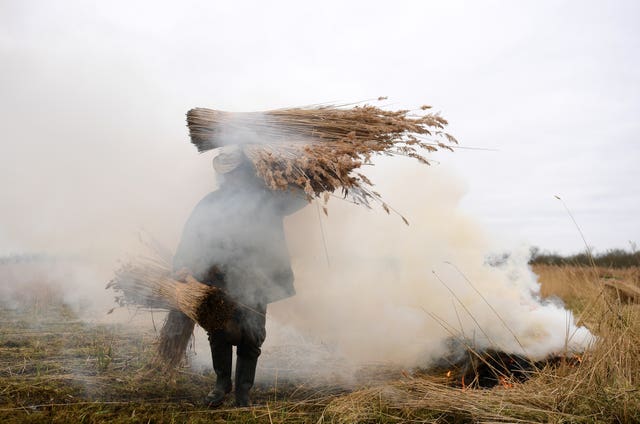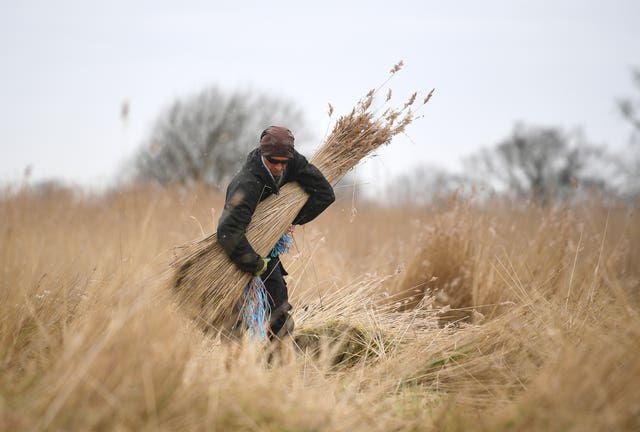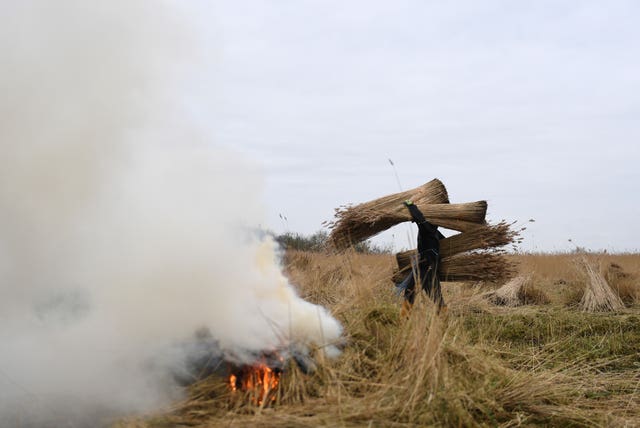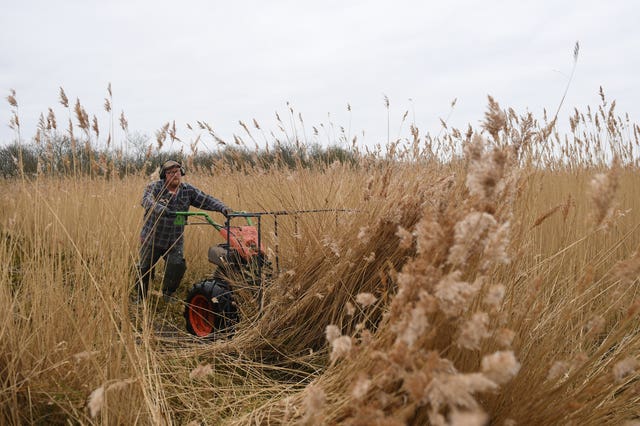Picturesque reedbeds on the Norfolk Broads have formed part of the rural economy for centuries, and a handful of skilled workers are helping to keep the tradition alive.
Reed cutting season started in early January and is currently at its peak, with professionals seeking to profit from a narrow window of opportunity that ends in late April.
One such professional, Paul Eldridge, was at work on a reedbed reached by boat near Ranworth, Norfolk, on Wednesday.
He said there were no more than 50 reed cutters in the UK.
The 39-year-old, from Norwich, left his job as an industrial chemist in New Zealand more than a decade ago to return to his home county and work in conservation.

“We liked it so much we carried on,” Mr Eldridge said.
They were joined by builder Lawrence Watts around seven years ago, and the three of them work on the land throughout the year.

“You’ve got to love this job otherwise you wouldn’t do it, there’s no two ways about it,” Mr Eldridge said.
“It’s never knowing what you’re going to see.
“If you like wildlife, we see all of the birds that birdwatchers kill to see, on a weekly basis.

“It was just having a little feed in the bed.”
He said that around 90% of reed used in the UK was imported and while it was cheaper it “doesn’t seem to have the longevity on the roof that English does”.
“In some ways in theory Brexit could be good as it could push up the cost of imports, but it depends what happens with agricultural policy,” Mr Eldridge said.
“As ever with everything there’s two sides to it.”

“If we were to have to start paying 30p or 40p per bundle for the privilege of cutting it, which is probably about what the difference in the subsidy is, it wouldn’t be economically viable, no way,” he said.
“It’s marginal, let’s put it like this, you only do this job if you like doing it.
“You don’t do it for the fame, fortune and money that’s for sure.”
He said he knew of many people aged in their seventies who still cut reed, adding: “No-one retires when they cut reed, I don’t think, you kind of just keep going.”






